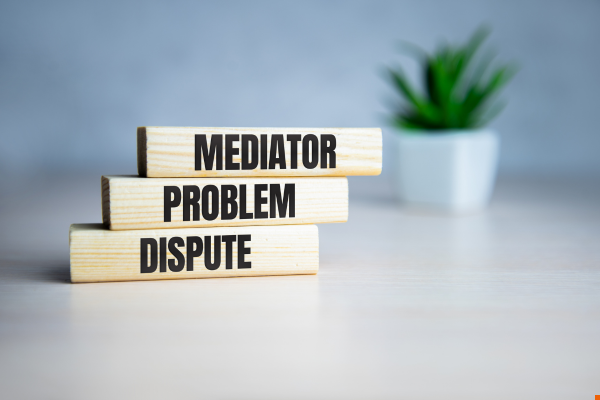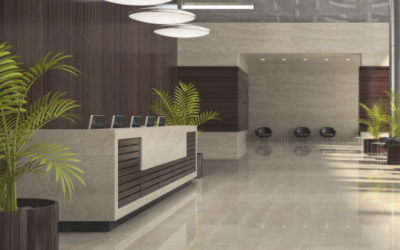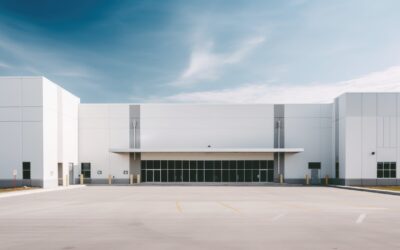
The Use of Technical Experts as Neutrals in ADR for Complex Construction Disputes
E. Mitchell Swann, P.E.
MDCSystems®
Consulting Engineer
A hot topic in the world of ADR (Alternative Dispute Resolution) is the extent to which ‘neutrals’ should be qualified and what type of qualifications they should have. Often, the first reaction is that the neutral should have legal training as their predominant skill and some experience with the subject matter of the case. As part of the program at the American Bar Association’s ADR Section Meeting in Los Angeles in April 2005, MDCSystems®, along with the other contributors to this article, discussed the use of technical experts as neutrals in ADR proceedings. Below is a summary of the key issues, ideas and opinions addressed and presented by the panel. The panelists come from varied backgrounds but all have participated in ADR proceedings in one form or another.
Q 1: For what types of disputes are technical experts generally most useful as ADR neutrals?
As a rule, the panel felt that disputes involving qualitative issues were better addressed by technically trained neutrals than legal specialists. A technical skill set proved a valuable asset in evaluating qualitative disputes such as whether or not a project, design, system or component was performed appropriately and if it was the best choice. The benefit of knowledge and actual experience in the subject matter is useful in deciding if the outcome was reasonable or whether the performance of the parties was appropriate given the circumstances. A neutral that is trained in the appropriate matter has a better opportunity to gain the respect of the parties and thus either recommend or facilitate a solution which all parties can live with.
“…technical disputes concerning performance, quality, reliability and maintainability provide the best opportunities for using technical knowledge to resolve the problem. … assessing the ‘appropriateness’ of the item or technology in question as it was applied to the project is one where technical expertise may be more valuable than legal acumen.” – Bob McCue
Sometimes a technical solution presented on a project might be the perfect answer but to a different question than that posed by the project. A technically trained neutral may be better qualified to discern those subtleties.
Q 2: Are technical experts better able than lawyer neutrals to handle disputes involving substantial testimony by party experts on technical issues?
The group consensus is yes. In disputes with substantial expert or technical testimony, technical experts are better equipped to deal with the technical nuances presented by dueling experts.
“Technical experts bring value to the mediation process when the disputes are fact intensive. As mediators, they provide the knowledge required to perform good evaluative sessions when the parties need feedback on their technical positions. As team members, they can investigate, assess and report on important technical matters ‘uninfluenced as to formal content by the exigencies of litigation.’” – Kirby Wright
One of the key issues in such situations is the use of jargon. If the mediator(s) or arbitrator(s) do not know the subject, they can be swayed by pure rhetoric which misses or ignores key issues that may greatly influence the situation and decision.
“To a listener having knowledge of the subject, the things that are NOT said are sometimes the most revealing.” – Bob McCue
As projects become more complicated in both their performance demands and execution strategies, the experience garnered from living on the frontlines can be a plus.
“Further compounding the requisite expertise of the technical expert is an understanding of the expanding use of non-traditional project delivery methods now widely used in the construction industry.” – Joe Seibold
Q 3: Are technical experts generally better suited to act as neutrals in some forms of ADR than other forms of ADR (e.g., DRB’s, mediations, arbitrations)?
The consensus of the panel is that there are ADR formats which are more conducive to the use of technical experts as neutrals. ADR processes which intervene early on (Dispute Review Boards), and are less legalistically formal (negotiation and mediation), both provide the best opportunity for the use of ‘expert’ neutrals. As the proceedings move up the legal firepower scale (Arbitration), the process of dealing with the dispute takes on greater importance and thus, legal acumen becomes more invaluable. Our panelists weighed in as follows on this particular question:
“There is probably more value to having engineers/architects up front in the process of resolution rather than at the back end. There may be unrecognized technical reasons for the problems being encountered and having technical knowledge on the DRB may result in a shorter learning cycle when undertaking additional studies, analysis or investigations. This leads to faster resolution and, typically, better “buy-in” from the design and construction parties on the project.” – Bob McCue
“…the nature of the disputes particularly before the dispute board are far more technical than legal in terms of the issues, by and large. Thus, it would seem that one could easily justify the more consistent use of technical experts on dispute boards rather than attorneys.” – John Madden
The value of rapid, almost preemptive Dispute Resolution may be maximized in the costs avoided.
“By selecting an available [DRB] panel of such experts and insuring that no conflict does or will arise which would bar the experts’ participation, the parties to the construction contract now realize several benefits. Not only is the resolution process defined, but also its rapid implementation is assured because the critical selection of the technical neutral is expedited. The contractor and owner both now expect that disputes have a higher probability of resolution at the earliest possible stage, and therefore bids by prospective contractors do not need to contain unnecessary contingencies to cover the uncertainties of lingering disputes.” – Joe Seibold
At this point, it might be good to summarize the principal observation of the panel as presented by a ‘consumer’ of ADR services provided by both attorneys and technical experts:
“Try as we may, the design and construction industry does not consider lawyers their peers. They are no more interested in having a lawyer tell them that they failed to meet engineering or construction standards than we are in having an engineer determine whether we have committed legal malpractice. Therefore, I believe that we will increase the likelihood of settling complex design/construction disputes if we increase the creative ways we involve technical expert neutrals in the ADR process.”
– Kirby Wright
Please visit our website at www.mdcsystems.com, where you can access more information on presentations.



0 Comments